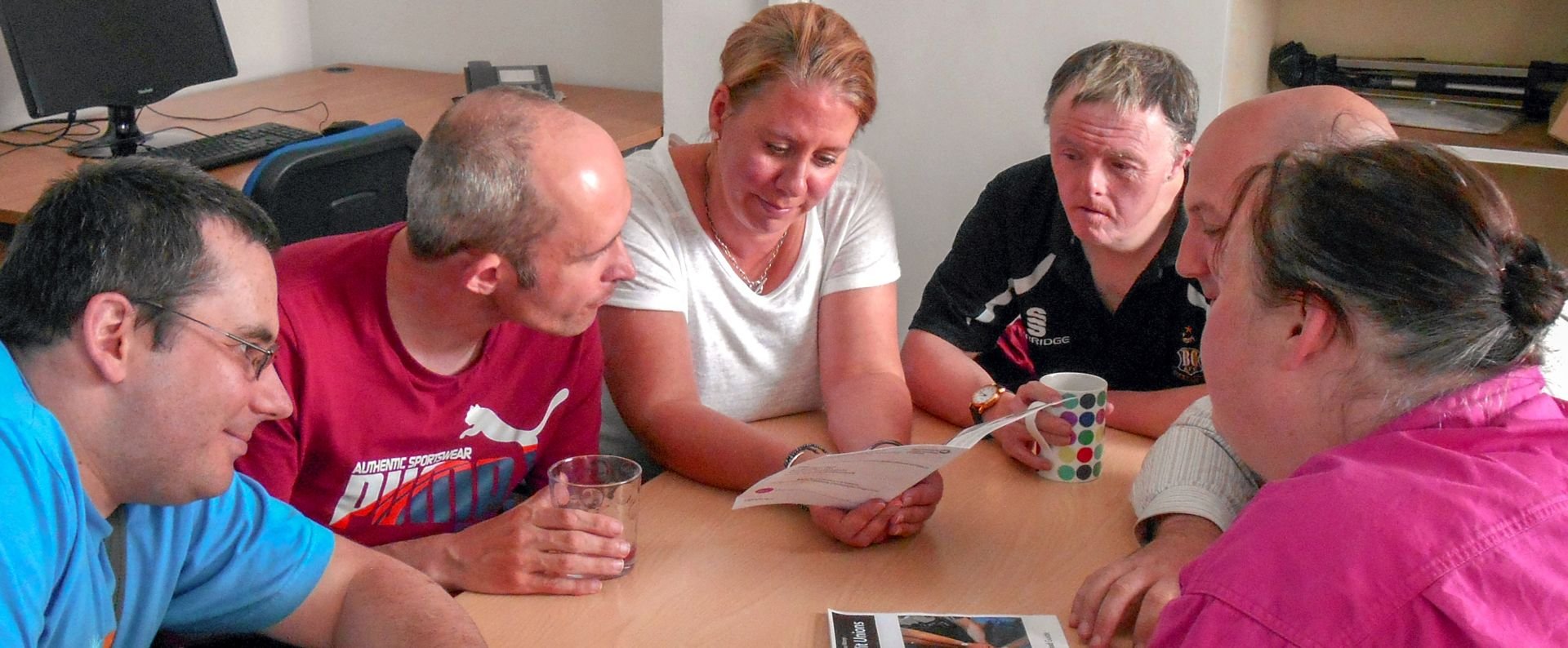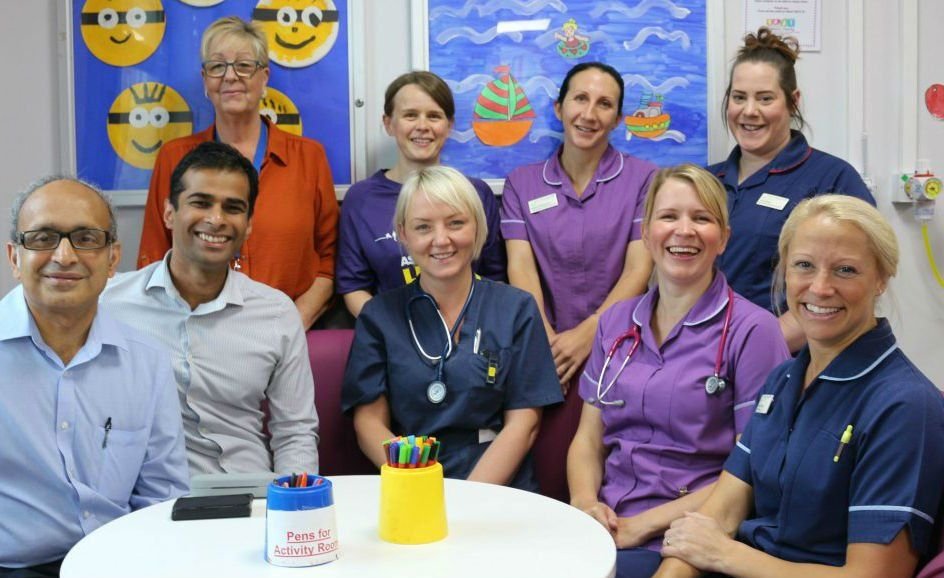Posted on: 18 September 2019
This week’s leadership message is a video blog from Rob Webster, CEO for South West Yorkshire Partnership NHS Foundation Trust and CEO Lead for West Yorkshire and Harrogate Health Care Partnership. In this video, Rob talks about the importance of planning and the development of our Five Year Strategy.
 What else has been happening this week?
What else has been happening this week?
Urgent and Emergency Care Programme Board
The West Yorkshire and Harrogate Urgent and Emergency Care Programme Board met on Monday, chaired by Dr Adam Sheppard. Ruth Buchan (Chief Executive of Community Pharmacy West Yorkshire) spoke about the opportunities within the new Community Pharmacy Contract for Framework to develop and expand the role of pharmacy in urgent care. From October 2019 onwards NHS 111 will be able to refer patients requiring minor/ lower acuity advice and treatment to community pharmacy. Our UEC transformation funds are being used to promote this through five events for contractors to hear about the service and promote its uptake. We are also funding some project support to pro-actively manage and support implementation.
Improving Planned Care Programme Board
The Programme Board met on Wednesday. The Board is chaired by Dr Matt Walsh, CEO lead for the programme and Chief Officer for Calderdale Clinical Commissioning Group (CCG). Board members include colleagues from the NHS, councils and community sector. They discussed the following:
Hydroxychloroquine and chloroquine - the Programme Board considered the proposal for a single West Yorkshire and Harrogate clinical pathway and policy for hydroxychloroquine and chloroquine retinopathy monitoring. Hydroxychloroquine and chloroquine are drugs used to treat various health conditions, particularly rheumatological problems. If taken for more than five years though, or in high doses, these drugs can increase the risk of damage to the retina.
Introducing this clinical pathway and policy will help to make sure that patients across West Yorkshire and Harrogate who are prescribed hydroxychloroquine or chloroquine have the correct monitoring and follow the same clinical pathway. This will help prevent avoidable sight loss to patients, avoid unnecessary interventions and free up clinical time.
The Board recommended that the pathway goes to the Partnership’s Clinical Forum for review, and then to Joint Committee for a decision to be made about adoption and approaches to implementation across West Yorkshire and Harrogate. Implementation of this pathway and policy will reduce the variation in monitoring offered to people across our region.
Medical appliances - Makrand Goré, Head of Medicines Management for NHS North Kirklees CCG and NHS Greater Huddersfield CCG, presented a business case for a West Yorkshire and Harrogate wide medical appliances review. Medical appliances are things like incontinence pads, needles, appliances for stomas (surgically created small openings in the body), and silk garments for use with certain skin conditions for example. The business case asks for a dedicated resource in the form of a senior project manager to look at the potential for a unified approach to managing such appliances across primary and secondary care. Programme Board supported the business case and has recommended that the CCGs consider ways of supporting this post to get the project underway.
 Healthy Hearts - Shane Hayward-Giles, RightCare Delivery Partner for West Yorkshire and Harrogate, gave an update on the Healthy Hearts project. Programme Board was asked to support the introduction of standardised and simplified treatment guidance for patients with high cholesterol. The Cholesterol Treatment Guidance aims to reduce the chances of patients developing conditions affecting their heart or blood vessels, improve the outcomes of patients already living with these conditions, and improve outcomes for those living with diabetes. The Board was happy to take this proposal forward and recommend it to the Joint Committee.
Healthy Hearts - Shane Hayward-Giles, RightCare Delivery Partner for West Yorkshire and Harrogate, gave an update on the Healthy Hearts project. Programme Board was asked to support the introduction of standardised and simplified treatment guidance for patients with high cholesterol. The Cholesterol Treatment Guidance aims to reduce the chances of patients developing conditions affecting their heart or blood vessels, improve the outcomes of patients already living with these conditions, and improve outcomes for those living with diabetes. The Board was happy to take this proposal forward and recommend it to the Joint Committee.
Engagement around the NHS Long Term Plan - Helen Hunter, Director for Healthwatch Calderdale and Kirklees, presented a summary of the findings from recent engagement carried out by Healthwatch around the NHS Long Term Plan. Findings show that in general, people very much appreciate the health care they receive and hold the NHS in high regard.
There’s a real willingness to embrace self-care but people did say that they need support to enable them to look after themselves properly. Some people expressed concerns that the self-care approach could mean that they would be distanced from healthcare professionals so the ability to be able to just talk to a professional when needed was highlighted as being important.
People are keen to see more use of technology but are cautious that this can widen inequalities as some people can access technology easily whilst others can’t. The increased use of technology also raised concerns about the lack of human contact and this was reflected by all age groups, as was the risk of personal data being used inappropriately.
People want familiarity and continuity of care after diagnosis but this is not as important before diagnosis when speed and efficiency are the most important factors.
Another key area from the findings is around carers, particularly the need for carers to be able to access information about the person they care for, to help them care for that person the best they can.
Programme Board welcomed the summary and agreed that there’s a real appetite to use these findings to feed into our thinking and our plans. This reflects the Partnership’s commitment that each programme will consider this data to make sure that the feedback taken from the public has been beneficial.
Partnership’s Five Year Strategy
Communication and engagement colleagues met on Tuesday to discuss the development of the Partnership’s Five Year Strategy. These meetings are important as they help to ensure there is a coordinated approach across the area; that we are not duplicating effort and are making the most of the insight and intelligence gathered from people in our local places.
Our Communication and Engagement Network has over 100 representatives from our six local place areas (Bradford District and Craven; Calderdale, Harrogate, Kirklees, Leeds and Wakefield). It meets every three months and includes Healthwatch, voluntary and community organisations, such as Macmillan, all NHS organisations, commissioning and community organisations including NHS England and Public Health England, all eight councils, the Academic Health Science Network, and Leeds Academic Health Partnership.Local communication and engagement leads are very important to the way we work across the Partnership. It’s essential they have the opportunity to share views on the development of our work including the Five Year Strategy. This helps to ensure their expertise is considered in advance of any communications being shared and published.
The Strategy Editorial Group also met on Wednesday. Feedback from the Partnership Board and other partners, including health and wellbeing boards as well as the production of the public summary was discussed. The next draft of our strategy will be shared with NHS England and NHS Improvement at the end of September. We will keep you updated on progress.
Workforce planning
We have recently been involved in the development of the NHS Full People Plan, which will be published later this year. Our involvement is via field testing a workforce development tool which is sponsored by the National People Board. As a large integrated care system (ICS) with a big NHS workforce, it is important that our views are reflected in national workforce plans. Working as one of eight field testing sites brings significant benefits for us; one being the ability to shape, influence and lead the direction of our own workforce development whilst informing national planning.
We are expecting a feedback report soon. This report will give us further insight to develop a refresh of our workforce plan whilst supporting our Five Year Strategy. Central to this is our workforce approach across our six local places (Bradford District and Craven; Calderdale, Harrogate, Kirklees, Leeds and Wakefield) and considering our position against workforce best practice.
The People’s Board's ambition is for the tool to be used by all Partnerships, like ours, as an enabler for transformation so we deliver quality of care to people and fully support those who work for the NHS. Many thanks to all colleagues involved including Kate Holiday, Brendan Brown and HR directors.
West Yorkshire and Harrogate Mental Health, Learning Disability and Autism Programme Board
The Board meets this morning in Wakefield. It is chaired by Dr Sara Munro, CEO for Leeds and York Partnership NHS Foundation Trust. Sara is also the CEO Lead for the Partnership’s Mental Health, Learning Disability and Autism Programme. Colleagues from the NHS, councils and community sector attend the meetings. The agenda includes an update from commissioners; and an overview of the Every Mind Matters campaign which will launch in October. There will also be an update on the work streams; including the Transforming Care Partnership; new care models; suicide prevention; autism/ADHD; complex care (rehab & recovery); urgent and emergency care and forensics.
 Working with people with learning disabilities
Working with people with learning disabilities
The Partnership shared the health and care champion work we are doing with people with learning disabilities in a NHS England webinar on Thursday. This includes the importance of planning and delivering care for people with learning disabilities through their lived experience.
West Yorkshire and Harrogate Improving Population Health Board
The Board meets for the first time today. The meeting will be chaired by one of the two Senior Responsible Officer leads for the programme, Robin Tuddenham (Calderdale Council CEO); the other is Dr James Thomas, Clinical Chair, NHS Airedale, Wharfedale and Craven Clinical Commissioning Group. The Board includes representatives from councils, including public health, the NHS and community sector. The first meeting will focus on informing the approach in West Yorkshire and Harrogate; ways of working and an overview of the roles of the networks and progress to date. The Partnership’s Five Year Plan is also on the agenda. Health inequalities, preventing ill health and population health management are a big part of our ambitions for the future. The Kings Fund has produced some helpful information on the importance of population health management. You can read it here.
West Yorkshire and Harrogate stroke care update
Work on hyper acute stroke services highlighted through its conversations with people across the area the importance of further improving care from prevention through to after care. In view of this a draft ‘whole pathway’ service specification has been developed which recognises and makes reference to the minimum standards and service outcomes we aspire to achieve for each part of the stroke pathway e.g. early supported discharge, rehabilitation and community services through to end of life care.
Local areas may deliver different approaches. They are responsible for commissioning services to meet the needs of local people so it was recommended that our six local places (Bradford District and Craven; Calderdale, Harrogate, Kirklees, Leeds and Wakefield) carry out a gap analysis (current v future state) to determine what actions (if any) are needed to deliver the post-acute stroke care standards (early supported discharged, community rehabilitation through to end of life care) described in the ‘whole pathway’ service specification in readiness for the publication of the national stroke plan.
To facilitate this work please join us in welcoming Emma Dorman, Stroke Pathway Improvement Project Manager from the Stroke Association who will be starting on Monday 7th October for 6 months.
The outcome of this work will enable each of our six local places and the partnership to determine what action/recommendations (if any) is required to further improve post-acute and community rehabilitation care services and pathways for the people of West Yorkshire and Harrogate.
Improving cancer care: new data hub
Yorkshire and Humber Care Record was thrilled to welcome the news that researchers in Yorkshire are collaborating on a new national data hub that aims to transform how cancer data from across the UK can be used to improve patient care. Yorkshire and Humber Care Record (YHCR) is an integral part of the collaboration and the Chief Data Officer is Monica Jones who is also the Population Health Management (PHM) Exec Lead for YHCR.
The new collaboration has been awarded £4.5 million to deliver DATA-CAN, the Health Data Research Hub for Cancer. The project will work closely with patients to bring their clinical data together and use this data to help develop improved cancer treatments, give patients faster access to clinical trials, and understand how we can improve NHS cancer services. You can find out more here.
What's happening next week?
- West Yorkshire and Harrogate System Oversight and Assurance Group meet on Monday. Rob Webster, our Partnership CEO Lead will chair the meeting.
 Bradford Teaching Hospitals NHS Foundation Trust, as a partner in the West Yorkshire and Harrogate Health and Care Partnership, have joined forces with Bradford University to host a day-long event dedicated to promoting paediatric health and home-based care. The inaugural West Yorkshire and Harrogate Paediatric Ambulatory Meeting will be held at the University of Bradford on September 25. Ambulatory care describes non-inpatient care, including urgent and non-urgent outpatient services. This is an emerging area of paediatrics and will be critical to the delivery of high quality care for our children and young people in the coming years. The conference has been put together by members of the Trust’s award-winning Ambulatory Care Experience (ACE) service. You can read more here
Bradford Teaching Hospitals NHS Foundation Trust, as a partner in the West Yorkshire and Harrogate Health and Care Partnership, have joined forces with Bradford University to host a day-long event dedicated to promoting paediatric health and home-based care. The inaugural West Yorkshire and Harrogate Paediatric Ambulatory Meeting will be held at the University of Bradford on September 25. Ambulatory care describes non-inpatient care, including urgent and non-urgent outpatient services. This is an emerging area of paediatrics and will be critical to the delivery of high quality care for our children and young people in the coming years. The conference has been put together by members of the Trust’s award-winning Ambulatory Care Experience (ACE) service. You can read more here- West Yorkshire and Harrogate Communication and Engagement Network meet in Wakefield on Tuesday. Agenda includes: Think Learning Disability; organisational development; digital update and an overview of the work of the Mental Health, Autism and Learning Disability Collaborative.
- The project team for ‘Looking out for our neighbours’ campaign (2nd phase) meets on Thursday. If you’d like to get involved please get in touch.
 2019 Road World Championships: 21-29 September 2019
2019 Road World Championships: 21-29 September 2019
The world’s best cyclists are in Yorkshire next week for the UCI Road World Championships, the pinnacle event in the international road cycling calendar. The Championships will include a range of men’s and women’s races, across age groups from junior to elite, starting in different towns and cities throughout Yorkshire and each finishing in the main competition town of Harrogate. Please visit https:/

